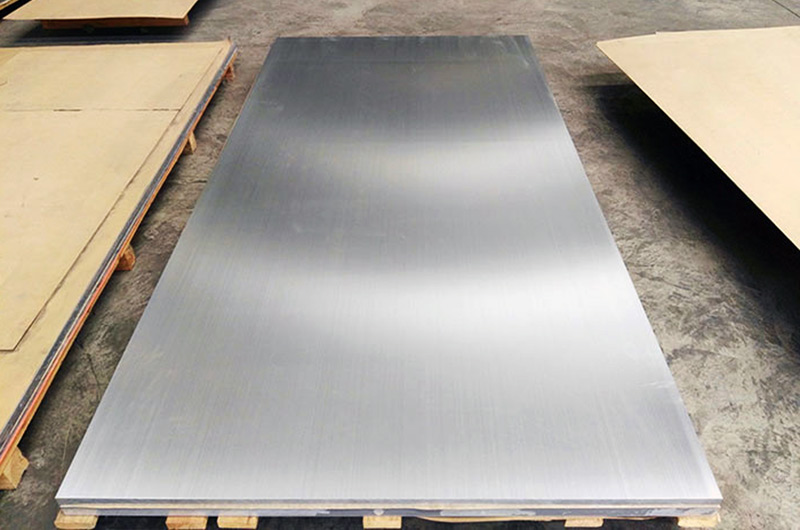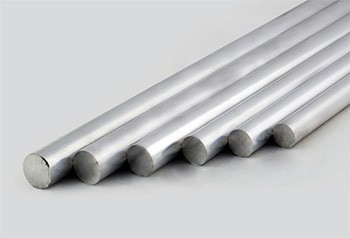5059 H116 Aluminum
5059 H116 aluminum alloy is a heat-treated and strengthened aluminum alloy state, where H116 indicates that the metal has undergone a special treatment during processing to produce a specific degree of intergranular corrosion and exfoliation corrosion, which gives the 5059-H116 aluminum alloy enhanced strength and higher fatigue resistance. This state of aluminum alloy is suitable for applications that require high stress, long-term fatigue, and high corrosion environments.
The high magnesium content makes the 5059 alloy exhibit excellent corrosion resistance in saltwater environments, making it particularly suitable for high-corrosion environments such as the marine and chemical industries.

5059 H116 Aluminum Mechanical Properties
| Property | 5059-H116 Aluminum |
| Elastic (Young's, Tensile) Modulus, GPa | 69 |
| Elongation at Break, % | 11 |
| Fatigue Strength, MPa | 210 |
| Poisson's Ratio | 0.33 |
| Shear Modulus, GPa | 26 |
| Shear Strength, MPa | 250 |
| Tensile Strength: Ultimate (UTS), MPa | 410 |
| Tensile Strength: Yield (Proof), MPa | 300 |
Chemical Composition of 5059 Aluminum H116 Alloy
| Grade | Max(%) | ||||||||
| Alloy 5059 | Si | Fe | Cu | Mn | Mn | Cr | Zn | Ti | Al |
| 0.45 | 0.5 | 0.25 | 0.6-1.2 | 5.0-6.0 | 0.25 | 0.40-0.9 | 0.2 | Remainder | |
5059 H116 Aluminum Properties
The H116 state of the aluminum alloy requires special treatment during the processing, typically involving heat treatment, strain hardening, and a certain degree of intergranular corrosion.
Enhanced Strength and Fatigue Performance
After heat treatment, the strength and fatigue performance of 5059-H116 aluminum alloy are significantly improved. Compared to the H111 state, the H116 state of the aluminum alloy exhibits stronger tensile strength, yield strength, and fatigue resistance, making it capable of withstanding higher working loads and longer periods of repetitive loading.
Corrosion Resistance
5059-H116 aluminum alloy has excellent corrosion resistance, especially in seawater and saltwater environments. Its corrosion resistance makes it highly suitable for applications in ships, marine platforms, and other structures exposed to corrosive environments.
The aluminum alloy in the H116 state undergoes specific treatment for intergranular corrosion and exfoliation corrosion compared to H111, making it more suitable for long-term use in high-corrosion environments.
Machinability
Although the H116 state aluminum alloy shows improvements in strength and fatigue resistance, its machinability is slightly reduced compared to the H111 state. Due to the strengthening treatment, 5059-H116 aluminum alloy is relatively more difficult to process during welding and forming, requiring more precise machining techniques.
Welding Performance
5059 H116 aluminum alloy has good welding performance, but due to its high strength and hardened state, special attention may be needed for cracks and deformation in the heat-affected zone during welding. Using appropriate welding techniques, such as tungsten inert gas (TIG) welding or metal inert gas (MIG) welding, can result in good welding quality.
5059 H116 Aluminum Applications
The high strength, fatigue resistance, and excellent corrosion resistance of 5059-H116 aluminum alloy make it highly suitable for use in harsh environments, especially in applications that need to endure long-term high stress and repeated fatigue.
Ships and Marine Platforms
5059 H116 is widely used in marine platforms, hulls, ship components, and other structural parts that are exposed to seawater or salt mist environments for long periods, particularly for critical components requiring high strength and corrosion resistance.
Marine Equipment
5059 H116 is used in the production of marine exploration equipment, subsea pipelines, buoys, and other equipment that endure high loads, fatigue, and extreme corrosion conditions over extended periods.
Chemical Industry and Chemical Equipment
5059 H116 is suitable for chemical reactors, pipelines, heat exchangers, and other equipment, particularly those working in corrosive environments and needing to endure chemicals or high-temperature conditions for long periods.
High-Stress, High-Load Structural Components
The high strength and fatigue resistance of 5059-H116 aluminum alloy make it widely used in high-strength structural components, especially in parts subjected to repetitive loads, such as bridge structures, industrial machinery, and high-stress aerospace components.
The high strength, good corrosion resistance, and fatigue performance of 5059-H116 aluminum alloy make it an excellent choice for applications in marine, shipbuilding, and chemical industries, where high strength and durability are required. Although more complex in machining and welding, its enhanced performance and corrosion resistance meet the demands of high-performance environments. For applications requiring long-term repeated loading and exposure to harsh environments, 5059-H116 aluminum alloy is undoubtedly the better choice.
Recommended for you
-
5059 marine-grade aluminum offers many benefits to the shipbuilding industry, including reduced weight, increased load capacity, improved stability and speed, corrosion resistance and versatility.
-
5059 H111 is a condition of 5059 aluminum alloy, where "H111" indicates that it has undergone certain processing techniques to achieve a strength level lower than the H11 condition, typically through strain hardening and cold working.
-
5059-H321 aluminum alloy is the version of 5059 aluminum alloy in the H321 condition, which has undergone strain hardening and stabilization treatment.
Other content readers are interested in
-
5059 5086 Marine Grade Aluminum Bars
Marine-grade aluminum rods such as 5059 and 5086 combine corrosion resistance, strength and lightweight properties, making them an indispensable material in a variety of marine applications where durability and reliability are important.
Recommended for you
-
5052 marine aluminum alloy is a high-strength, corrosion-resistant, easy-to-process and weld aluminum alloy, which is widely used in the manufacture of ships and marine structures.
-
5083 is basically used to manufacture ship hulls because of its relatively high strength and good corrosion resistance.
-
5059 aluminum is both a high-magnesium and high-zinc alloy, offering excellent corrosion resistance and fire resistance.
-
5086 aluminum alloy is irreplaceable in hull and deck applications in marine operating environments due to its unique seawater corrosion resistance, excellent low-temperature toughness, and good weldability.
-
5383 aluminum offers excellent fatigue resistance and crack resistance, and its unique properties make it irreplaceable in the design of high-speed vessels and marine structures that require long-term fatigue resistance.
-
5456 aluminum, with its unique high strength, exceptional fatigue resistance, and resistance to stress corrosion cracking, is irreplaceable in heavy-duty hull structures.
-
5754 aluminum is a medium-to-high strength alloy with excellent weldability, a low tendency for welding cracks, and high strength in both the weld joint and the crystalline metal.
More content of interest to readers
5059-H116 Aluminum vs. 5059-H321 Aluminum 5059 Aluminum vs. 5083 Aluminum 5059-H111 Aluminum vs. 5059-H116 Aluminum 5083 vs. 5059: Aluminum Alloy Selection in Shipbuilding
You might be interested in: Marine Aluminum 5059

